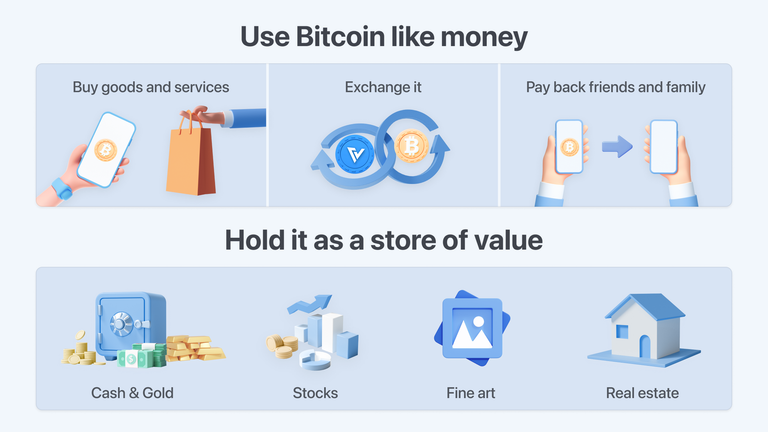
Introduction
Welcome back to our 14-Week Crypto Journey! Last time, we laid the foundation with a basic understanding of blockchain.
Today, we’re diving into the world’s first cryptocurrency: Bitcoin.
Whether you’re new to crypto or looking to sharpen your knowledge, this post will give you a solid understanding of what Bitcoin is and why it matters.
What is Bitcoin?
Bitcoin (BTC) is a decentralized digital currency created in 2009 by an anonymous person or group of people using the pseudonym Satoshi Nakamoto.
It was designed as a peer-to-peer system that allows users to send and receive payments without relying on intermediaries like banks.

Key Features of Bitcoin
- Decentralization
Unlike traditional currencies issued by central banks, Bitcoin operates on a decentralized network called the blockchain, maintained by thousands of computers (nodes) worldwide.
- Limited Supply
Bitcoin has a capped supply of 21 million coins, making it a deflationary asset. This scarcity contributes to its value over time.
- Transparency and Immutability
Every Bitcoin transaction is recorded on the blockchain, ensuring transparency. Once a transaction is confirmed, it cannot be altered or deleted.
- Security
Bitcoin transactions are secured using cryptographic techniques. The decentralized nature of the blockchain makes it highly resistant to fraud and hacking.
Why is Bitcoin Important?
- Financial Freedom
Bitcoin allows individuals to control their own money without government or institutional interference.
- Hedge Against Inflation
Due to its limited supply, Bitcoin is often seen as a store of value, similar to gold.
- Global Accessibility
Anyone with an internet connection can use Bitcoin, making it accessible to millions of unbanked individuals worldwide.

Bitcoin’s Use Cases
- Digital Payments
Bitcoin can be used to purchase goods and services, both online and in physical stores.
- Investment
Many people invest in Bitcoin, hoping its value will increase over time.
- Remittances
Bitcoin offers a faster and cheaper way to send money across borders compared to traditional methods like banks or money transfer services.
- Store of Value
Bitcoin is often referred to as “digital gold” due to its potential to preserve value over time.

Potential Challenges
- Volatility
Bitcoin’s price can fluctuate significantly, which might be intimidating for new investors.
- Regulatory Uncertainty
Some governments are still figuring out how to regulate Bitcoin, which can impact its adoption.
Key Takeaways
Bitcoin is the first and most well-known cryptocurrency, offering a decentralized, transparent, and secure way to transfer value.
Its limited supply and increasing adoption make it a potential store of value and hedge against inflation.
Despite its benefits, Bitcoin’s volatility and regulatory uncertainties remain challenges for widespread adoption.
At the moment I'm writing this 1 BTC = 95.390$
Previous Post: Day 1 Understanding the basics of Blockchain
Next Up: Ethereum – The World Computer In our next post, we’ll explore Ethereum, the platform that introduced smart contracts and revolutionized blockchain technology. Stay tuned!